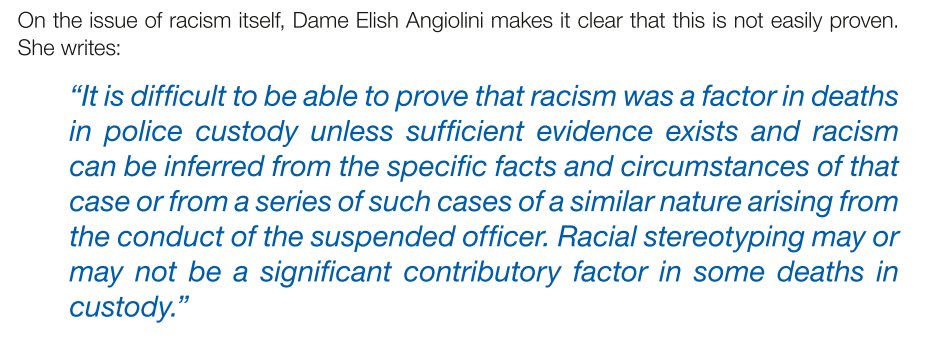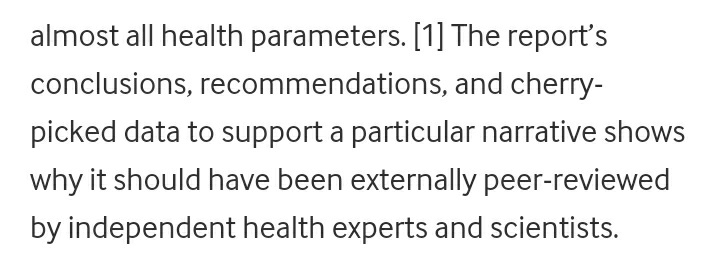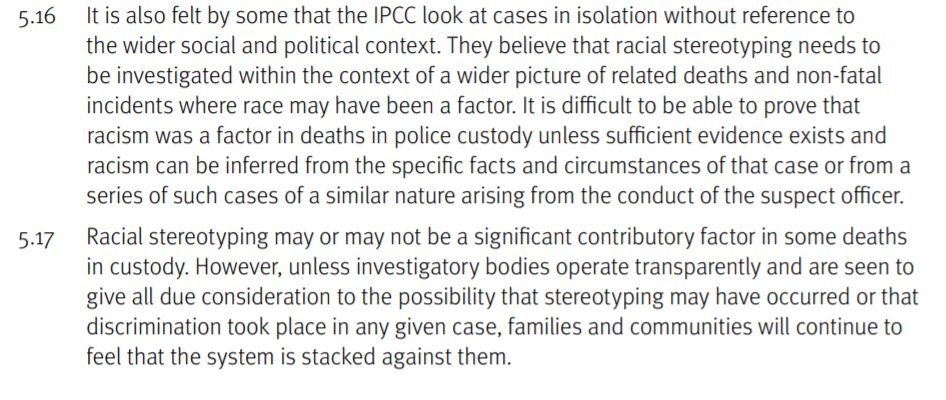
The #SewellReport really is a verbose, sloppy and intellectually dishonest piece of work. In the bits I know about (drugs and crime), there is a pattern of misleading readers by mischaracterising the sources it cites. Here are some examples. 1/n
To back a claim that cannabis is a 'gateway' drug, it cites a 2002 ACMD report. Here's what a later (2008) ACMD report says on the issue 

To support the idea that stop and search works, they rely on a study in the BJC . While this study found a small association with lower recorded drug crime, it conclude, 'claims that this is an effective way to control and deter offending seem misplaced'. academic.oup.com/bjc/article/58…
In discussing the link between race, crime and violent victimisation, the Commission write that age and deprivation explains much of the difference between ethnic groups. The cited report actually shows the disparity is not washed away by deprivation. assets.publishing.service.gov.uk/government/upl… 

Perhaps most egregiously, they misrepresent the words of Dame Angiolini in her report on deaths in custody (a report which repeatedly mentions the institutional racism of which Sewell's Commission denies the existence). Here is their quote of her words... 

To be fair, there are also citations that check out (e.g. to this study of the lack of racial bias in jury decisions). justice.gov.uk/downloads/publ…
But there are lots of other relevant research which they did not include in their blizzard of references, presumably because it did not fit their argument. E.g. this report on the lack of effectiveness of increased stop and search gov.uk/government/pub…
In its combination of loads of 'scientific' references, odd jumps to moralising, and misrepresentation of its sources, the #SewellReport reminds me of an old @CPSThinkTank report. Does anyone know if any CPS or CJS start helped Sewell write it? cps.org.uk/research/the-p…
This comment in a trenchant critique of the #SewellReport from a @bmj_latest blog also applies to its sections on crime. blogs.bmj.com/bmj/2021/03/31… 

And if you're interested in examples of how the report repeatedly undermines its own arguments with the data it present, which it then misinterprets...
https://twitter.com/nathanoseroff/status/1377220050013323264
• • •
Missing some Tweet in this thread? You can try to
force a refresh




